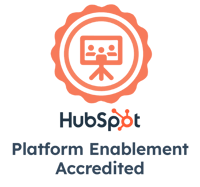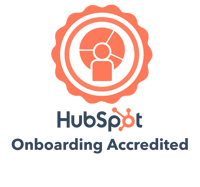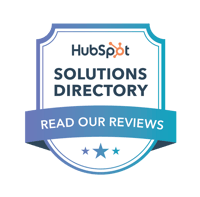Conventional wisdom says if you want to rank on Google, you need to focus on keywords. The more your website focuses on specific phrases, the more likely it is to rank for those phrases...right?
Well...not really, no.
Google has evolved at a rapid rate, and it no longer relies on basic indicators for ranking a website, like counting the number of times a keyword is used. If you want to rank for the phrase "SEO," it doesn't matter how many times you shove that word onto a page - that alone isn't going to get you ranking. In many cases, it might actually get you penalized by Google. They know people try to game the system, and they don't like it.
As Google and other search engines have evolved, the focus has shifted away from specific words. Instead, Google now grades content based on how well it answers a user's question - which includes more than just the specific question itself. Why are they searching for this (intent)? A search for the answer on why a washing machine is leaking is very different than the search for an answer on the best local plumber to install a new washing machine. Searchers may use the same keywords for both.
This means that to get found online, you have to move beyond keywords. You need to look at topics instead.
Note: In this blog I mostly reference Google because we have the most information about how their algorithm works (even if it's not a lot of information). The basic principles below apply to most search engines however, including website-specific searches like on TikTok, Instagram, YouTube or LinkedIn.
Quick Refresh: What Are Keywords?
Keywords are exactly what they sound like - key words that you want to rank for on Google. For example, "web design" or "digital marketing."
There are two primary types of keywords, short tail and long tail.
Short tail keywords are direct and to the point - "SEO"
Long tail keywords are closer to phrases or full questions - "what is on-page SEO"
Before we delve into topics, I don't want you to completely dismiss keywords. They're still incredibly useful for content planning. Long tail keywords in particular can be the foundation on which you'll do your content planning, as they give you a glimpse into the specific words that people type into Google.
From there, you want to move beyond the specific words, into a more complex strategy that aligns with modern search.
Why Shouldn't I Use Keywords Anymore?
Google's goal since its inception has been to deliver accurate, clear, and authoritative results to searchers. In its early days, Google had to rely on keywords to understand what a page was about. That led to a lot of painful, bloated content like:
We offer digital marketing services in the Minneapolis area. Our Minneapolis digital marketing services are the best digital marketing services in Minneapolis. If you need digital marketing in Minneapolis, we're in Minneapolis.
To help curb this type of content (which is called keyword stuffing), Google's algorithm has been shifting more and more toward content written with the user in mind, not keywords. This is encompassed in Google's 5 core factors of ranking websites:
- Meaning of your query - Google trying to understand what a user is searching for.
- Quality of content - Google deciding if your content is trustworthy and reliable.
- Relevance of webpages - Google figuring out what a specific page is about.
- Usability of webpages - Google recognizes that your site is functional to modern standards.
- Context and settings - Google uses the searcher's settings to deliver the most relevant content.
For the purposes of this blog, we'll be looking mostly at: Meaning of Your Query, Relevance of Webpages and Context and Settings. These are the elements of SEO that are most directly impacted by the subject of a piece of content - which should be the topic, as I'll explore in a moment.
Related Content: How Google Ranks Websites
Topics vs Keywords
It's not that you should abandon keywords entirely, but they shouldn't be the driving force of any page or blog. Instead, you should focus on topics. The main difference between the two is trying to answer a question or search query in-depth vs. just focusing on a specific phrase.
For example, let's break down this blog post.
Keywords: SEO, Keywords, Google
Topic: Why focusing on topics instead of keywords can help you rank in Google
The two are very similar, but keywords are much more restrictive. By contrast, the topic gets to the core of why someone would read this blog post - they want to learn more about ranking in Google, and how they can adjust their strategy. (It also matches voice search much more closely, but that's for another blog.)
This also means that when actually writing your content, you're less focused on the specific words you use and more focused on answering the question posed by your topic.
In practice, this means that you can rank for a piece of content without having to just repeat an exact keyword every single time. For example - Google will read this full blog before ranking it. It's intelligent enough that I can write "SEO" and "getting found on search engines" interchangeably, and Google will view that all in service of one greater topic. When keywords reigned supreme, it may have struggled with that and considered "SEO" and "getting found on search engines" to be two separate topics.
How Do I Get Started with Topics?
The key with nailing topics is research. Unlike keywords, there isn’t a simple tool you can use to track how often they’re used. Instead, you need to rely on the information you gather about your ideal audience, how they make purchasing decisions and how they interact with the web.
This is a bit more complex than keywords, but I do have good news for you: while the research process is longer, the writing process is much easier. Keywords arose as a necessity for cataloging information online, and not a reflection per se of how people tend to engage with information. While there are factors that impact how we find and digest information such as neurodivergence, language proficiency and lived experience - content written around topics tends to align more closely with how a vast majority of people engage with information.
In order to effectively use topics in your SEO and content writing, these are the steps you need to follow.
1. Focus on buyer personas and their decision-making process
One of the core factors that Google considers when ranking websites is Context and Settings. This encompasses some demographic information such as the user’s location, but “context” also looks at their behavior. It considers what searches the user has done immediately before their current search, what they’ve searched for in the past and what content they typically engage with.
For business owners, this means it’s vital to identify your key personas so that you can identify the correct contextual information to include in your content. This doesn’t mean directly calling someone out, but it subtly influences your writing. As a thought exercise, imagine you’re writing a blog about choosing the best running shoes. How might the words you use and how you organize the blog differ if you’re writing to someone who is just getting started running vs. someone who competes in marathons? The specific shoes you recommend might be the exact same, but all the surrounding details will change.
This means that finding your ideal buyers (what we call personas) is extremely important and can’t be skipped. I have an entire in-depth guide to personas and their decision-making process here: Walking the Buyer's Journey.
In short, a buyer persona is a semi-fictional representation of your ideal customer. These are also sometimes called ideal customer profiles for that reason. They include demographic information as well as behavior and habits. Interviewing your current customers is a great place to start to gather that information. Next step is just doing a lot of research. AI tools like Ella by Atomic Elevator, HubSpot's Breeze and ChatGPT can help you find more information based on your existing research.
2. Look at the buyer's journey
You also need to know how your buyer makes their decisions. Two pieces of this puzzle are the buyer’s journey and search intent. I briefly introduced the buyer’s journey when exploring personas, but this is where it takes shape. The buyer’s journey refers to how a typical customer moves from viewer to buyer. It includes three core stages:
- Awareness- They know they have a problem/goal, and are doing research on the what, why and how.
- Consideration - They’ve identified their problem and are looking at the various options for solving that problem.
- Decision - They’ve decided what they need to do, and now they’re comparing solutions.
Most blog, social media and video content speaks to awareness and consideration, while page content (such as service pages) and comparison videos tend to speak to the decision process. When courting a buyer, it’s vital to have content that speaks to every stage of this journey.
Related Content: Walking the Buyer’s Journey
This also ties back into Google’s core principles of Meaning of Your Query and Relevance of Webpages (with a dash of Context and Settings). If my toilet is running, I may use slightly different but similar phrases when I’m asking Google why this is happening vs. asking Google how to find someone to fix it after I tried to DIY.
This is important for your content based on topics, because it will inform your topic and your approach. If the topic is “why is my toilet running,” that’s a different piece of content than if the topic is “why you should hire my plumbing company to fix your toilet.”
3. Determine search intent
I mentioned that search intent was the other piece of the topic puzzle when talking about the buyer’s journey. If the buyer’s journey is the what, then search intent is the how. Search intent is categorized by Google behind the scenes, and generally is broken down into one of the following categories:
- Informational intent searches are based on gathering information, both basic and complex. In this type of search, people have a specific question or want to know more about a certain topic.
- Navigational intent searches help searchers find an actual website. For example, searching "Facebook" into Google to find pics of their grandkids or see what their college buddies are doing on, ya know, Facebook.
- Transactional intent searches focus on retail or eCommerce. These are searches intending to buy a specific product, like "high waisted jeans" or "cheap sunglasses."
- Commercial intent searches help find future purchases. People may know they need a larger item in the future and want to do research online before purchasing. This often applies to service-based industries or more consultative buying processes.
You'll likely notice that intent often matches the buyer's journey. Someone in the awareness or consideration stage of their buyer’s journey is likely to use searches with informational intent. Someone who is in the decision stage and comparing vendors is likely to use navigational, transactional or commercial intent.
Putting it All Together
Let’s take everything I’ve gone over and look at how we might actually arrive at specific topics. This is a bit of a look at how the sausage is made.
As mentioned before, you can plug in all of the information you’ve gathered into an AI tool like Ella, HubSpot's Breeze or ChatGPT and ask “what questions are my ideal customer asking at X stage of the buyer’s journey?” This can be a helpful starting point, but like with anything AI, I always say - trust, but verify.
Another place to start is using tools like AlsoAsked and Answer the Public. These tools take simple keywords and show you the actual searches people type in. For example, typing “running toilet” into AlsoAsked brings up an interactive web of related searches:

I can then match some of this information with what I know about my customers and their behavior from all that research I did before.
So in this example, I may identify the following topics:
"Will a running toilet eventually stop?" For a buyer in the awareness stage, doing an informal search. I would make this a blog post.
"Should I call a plumber for a running toilet?" For a buyer in the consideration stage, doing an informational search. I would make this a blog post.
"Fixing Running Toilets in [Location]" For a buyer in the decision stage, doing a transactional search. I would make this a page on my website.
Keywords aren't disappearing completely, but it's time to stop writing for the past and to start writing with topics in mind. Topics are a more natural way of conveying information that resonates with your audience. This meets Google's goals with their search engine and makes your website more likely to appear in search results.
Free Guide: Beginner's Guide to Digital Marketing
This in-depth guide covers everything you need to know to get started with effective digital marketing:
What exactly digital marketing is and how it works.
Explore a step-by-step process for running an digital marketing campaign in today’s competitive business landscape.
Best practices for your digital marketing strategy
We walk through how to implement a strategy using digital marketing, email, SEO, social media and online advertising.
How to measure the impact and ROI of your strategy
Make insights-driven business decisions and confidently present the value and impact of marketing efforts in support of top-level business objectives.
BizzyWeb is a Minneapolis-based digital marketing and web design agency that helps companies get the high-quality leads they need to grow and thrive. Our tactics include inbound marketing, SEO, advertising, web design, content creation and sales automation. We are an accredited HubSpot Diamond Partner and we offer full-service HubSpot onboarding, enablement and strategy for new and current users.






